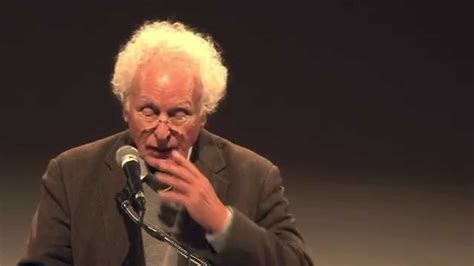A Quote by Jill Bolte Taylor
I realized, "Oh my gosh! I'm having a stroke!" And the next thing my brain says to me is, Wow! This is so cool! How many brain scientists have the opportunity to study their own brain from the inside out?"
Quote Topics
Related Quotes
Scientists who study brain-wave activity found that the longer one watches television, the more likely the brain will slip into "alpha" level: a slow, steady brain-wave pattern in which the mind is in its most receptive mode. It is noncoggnitive mode; i.e., information can be placed into the mind directly, without viewer participation.
Since functional brain imaging first emerged, we have learned that there aren't very many brain regions uniquely responsible for specific tasks; most complex tasks engage many if not all of the brain's major networks. So it is fairly hard to make general psychological inferences just from brain data.
Everyone uses the brain at every moment, but we use it unconsciously. We let it run in the background without realizing the power we have to reshape the brain. When you begin to exercise your power, the everyday brain, which we call the baseline brain, starts to move in the direction of super brain.
Essentially, there's a universe inside your brain. The number of connections possible inside your brain is limitless. And as people have learned to have more managerial and direct creative access to their brains, they have also developed matrices or networks of people that communicate electronically. There are direct brain/computer link-ups. You can just jack yourself in and pilot your brain around in cyberspace-electronic space.
If I say any word, like, "Sit next to me." There is a chemistry inside of my brain and your brain that is figuring out what that means and turning that request into action. The brain is designed in a way to enable us to translate these strange interaction codes that people have with each other into something that can manifest a whole company's success. That's so extraordinary and that's what's going on. Everybody in the world needs to know that, in the whole planet. I just talked to somebody who studies cosmoses. She said, "Cosmoses need this."
All sorts of things can keep one awake. But as you get older - this is what the stroke thing really brought home to me - this thing that I never paid attention to: my brain. I've always been conscious that, of course, after a night of getting stoned, my head would feel foggy; if I got drunk the night before I'd be hungover. But that was the extent of my concern about my brain. And then with the stroke thing, it made me realize, "God! That's my main source of income." So it relates actually to your other question about growing old.
Psychologism holds that logical assertions are percolations of brains. Thus logic is a set of rules for how healthy brains operate. Aside from the infinite regress of a brain determining whether a brain is healthy, we have the infinite regress of the idea 'All concepts are brain percolations' being itself a brain percolation, on its own terms.
The elegant study... is consistent with the themes of modern cognitive neuroscience . Every aspect of thought and emotion is rooted in brain structure and function, including many psychological disorders and, presumably, genius. The study confirms that the brain is a modular system comprising multiple intelligences, mostly nonverbal.
Most brain scientists have not taught 4th grade, and don't know very much about the classroom, even though they might study learning in some detail. Most education professionals, who often know a tremendous amount about the classroom, don't know much about the brain. That is one of the reasons why I am so skeptical about applying brain findings to the classroom.
The brain is really hard to see. The whole thing is very large - the human brain is several pounds in weight - but the connections between brain cells, known as synapses, are really tiny. They're nanoscale in dimension. So if you want to see how the cells of the brain are connected in networks, you have to see those connections, those synapses.


































